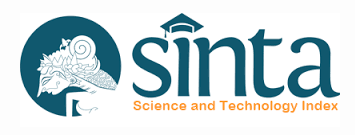Konvergensi dan Kompetisi Media Massa dalam Memenangkan Pasar di Era Media Digital di Makassar
Abstract
The aim of the research was to analyze the printed mass media in making use of new media (online media) in order that they are able to converge and compete in an attempt to seize market in order to reap the advertisements and readers in the digital media era in Makassar.The Research was conducted to the editors in Chief, reportage coordinators and the manager of online media in Makassar, i.e. Tribun Timur Makassar and Fajar. Informants were selected by using purposive sampling methode based on the consideration that those informants knew well of what was expected from the research. The methodes of collecting the data were observation, in-depth interview, and documentation. The data were analyzed using by qualitative analysis.The results reveal that mass media convergence could overcome the decrease of the number of readers on mainstream media since the distribution of news does no longer only rely on newspapers but also on online media. The presence of these online media is a part of conventional media aiming to strengthen the media function of media so that they could expand the reader networks through a wider range of the distribution of news. This is the answer to market demands in order to survive and win the market in digital media era in Makassar. Mass media competition is analyzed by using Niche theory in which the media compete in one another in the same ecological space to obtain the source of life support, i.e. capital, content, and audience. Capital (advertisement) is the primary source of support, so online media are seriously given attention in order that they give a large amount of turnover. However, the income obtained from advertisements is still low compared to that of newspapers since the form of competition is not really high. This is because the companies in Makassar do not give a big advertisement budget allocation in online media.References
Abrar, Ana Nadya. 2003. Teknologi Komunikasi Perspektif Ilmu Komunikasi. LESFI. Yogyakarta.
Achmad, AS. 1990. Manusia dan Informasi. Lembaga Penerbitan Universitas Hasanuddin, Ujung Pandang
Friedman, Thomas. 2006. The World Is Flat. Dian Rakyat, Jakarta
Kartajaya, Hermawan. 2010. Connect! Surving New Wave Marketing. PT Gramedia Pustaka Utama, Jakarta
Kotler, Philip. 2000. Marketing Management, Millenium Edition. Pearson Custom Publishing, New Jersey, Amerika.
Kovach, Bill dan Rosenstiel, Tom. 2006. Sembilan Elemen Jurnalisme. Yayasan Pantau, Jakarta
Little John, S.W. 1995. Theories of Human Communication (Fifth Edition). Wadsworth publishing Company, Belmont California
Little John, S.W dan Foss, Karen A. 2009. A Theories of Human Communication (Ninth Edition). Salemba Humanika, Jakarta.
McQuail, Dennis. 1996. Teori Komunikasi Massa. Diterjemahkan oleh Agus Darma dan Aminuddin Ram. Erlangga, Jakarta
Pavlik, V John. 1996. New Media Teknologi : Cultural and Commercial Perspectives. Columbia University Press, New York
Pavlik, V John. 2008. Media In The Digital Age. Columbia University Press, New York
Porter, Michael E. 2001. Journal Harvard Bussines Review. Harvard University, Boston.
Rogers, M. Everett. 1986. Communication Techonology; The New Media in Society. The Free Press, New York
Santana, Septiawan, 2000. Jurnalisme Kontemporer. Yayasan Obor, Jakarta
Sendjaja, Sasa D, 1996. Teknologi dan Industri Media Massa di Indonesia : Menuju Era Niching dan Networking
Kartika, Kristiya. 1996. Ekologi Media : Persaingan Antar Industri Surat Kabar Dalam Memperebutkan Iklan, Tesis S2 Universitas Indonesia, Jakarta.
Once an article was published in the journal, the author(s) are:
granted to the journal right licensed under Creative Commons License Attribution that allows others to share the work with an acknowledgment of the work's authorship. permitted to publish their work online in third parties as it can lead to wider dissemination of the work. continue to be the copyright owner and allow the journal to publish the article with the CC BY license receiving a DOI (Digital Object Identifier) of the work.





